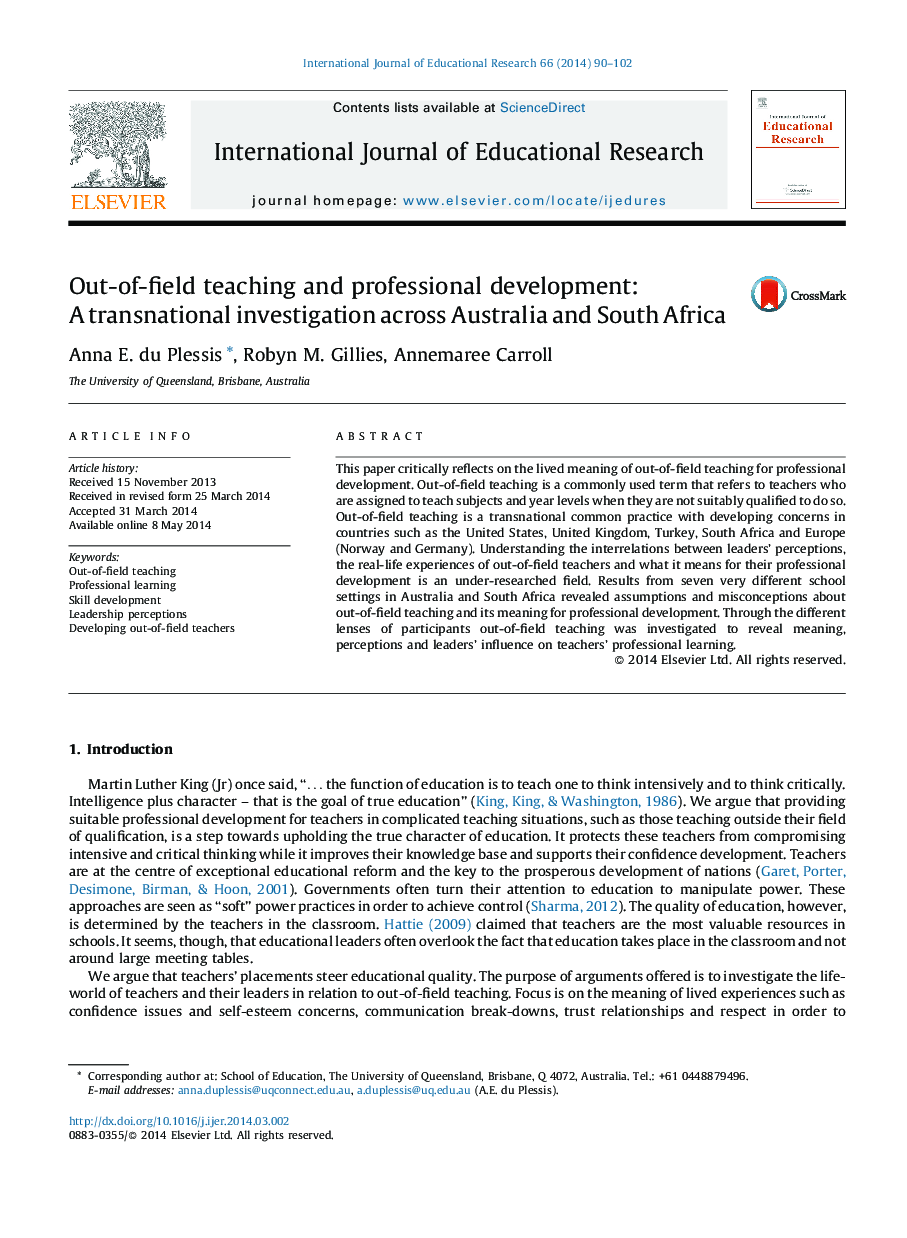| کد مقاله | کد نشریه | سال انتشار | مقاله انگلیسی | نسخه تمام متن |
|---|---|---|---|---|
| 356951 | 1435424 | 2014 | 13 صفحه PDF | دانلود رایگان |
• Out-of-field teachers’ lived experiences influence their professional development.
• An openness between leaders and out-of-field teachers impacts effective development.
• Leaders’ misconceptions of out-of-field teaching influence development opportunities.
• Leaders view out-of-field placements as “temporary” with implications for support.
• Leadership styles impact the development of out-of-field teachers into specialists.
This paper critically reflects on the lived meaning of out-of-field teaching for professional development. Out-of-field teaching is a commonly used term that refers to teachers who are assigned to teach subjects and year levels when they are not suitably qualified to do so. Out-of-field teaching is a transnational common practice with developing concerns in countries such as the United States, United Kingdom, Turkey, South Africa and Europe (Norway and Germany). Understanding the interrelations between leaders’ perceptions, the real-life experiences of out-of-field teachers and what it means for their professional development is an under-researched field. Results from seven very different school settings in Australia and South Africa revealed assumptions and misconceptions about out-of-field teaching and its meaning for professional development. Through the different lenses of participants out-of-field teaching was investigated to reveal meaning, perceptions and leaders’ influence on teachers’ professional learning.
Figure optionsDownload as PowerPoint slide
Journal: International Journal of Educational Research - Volume 66, 2014, Pages 90–102
